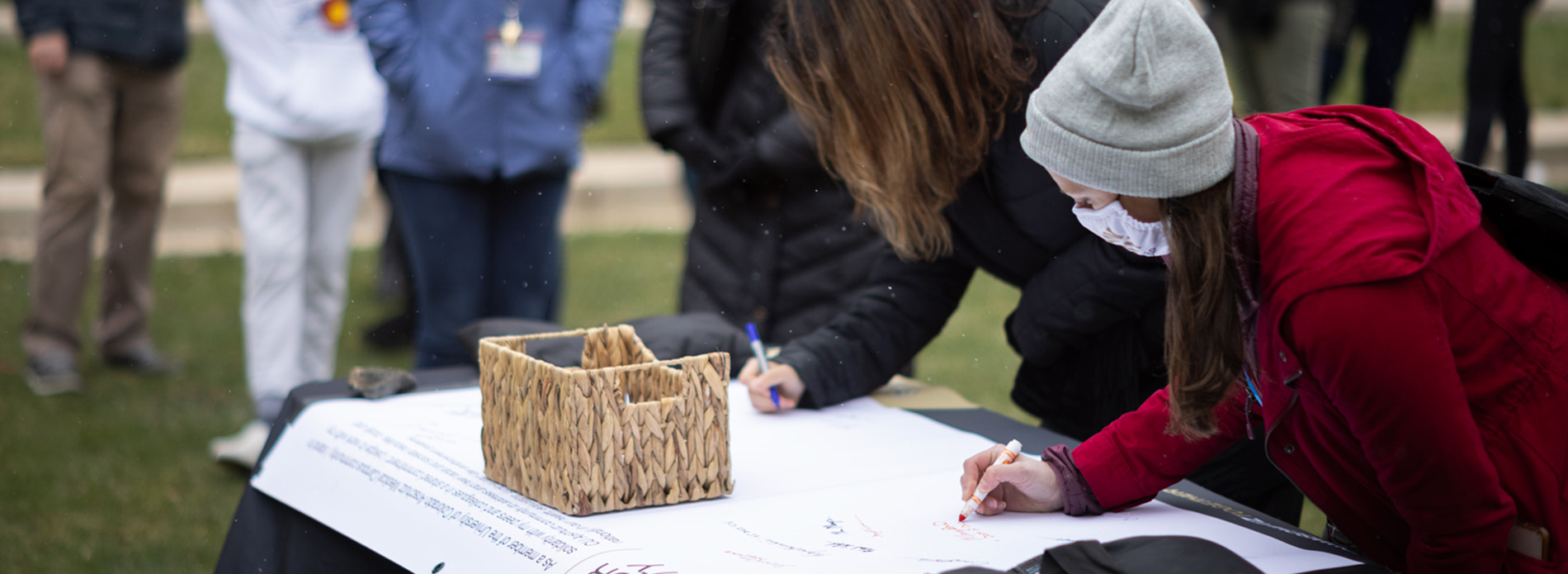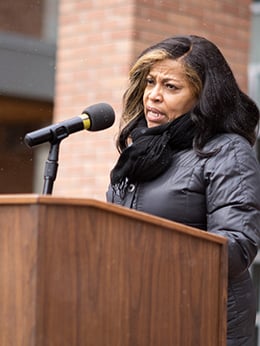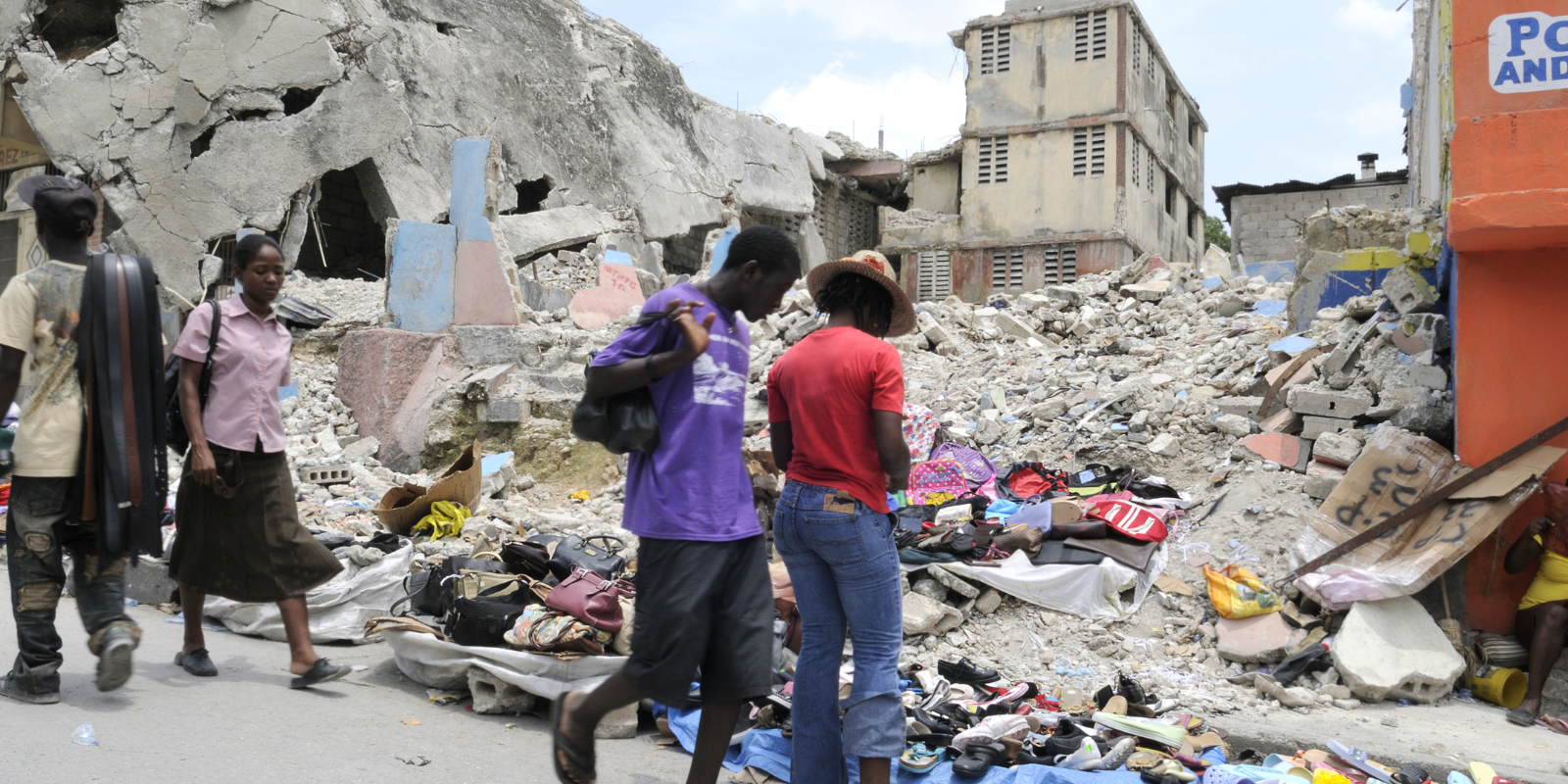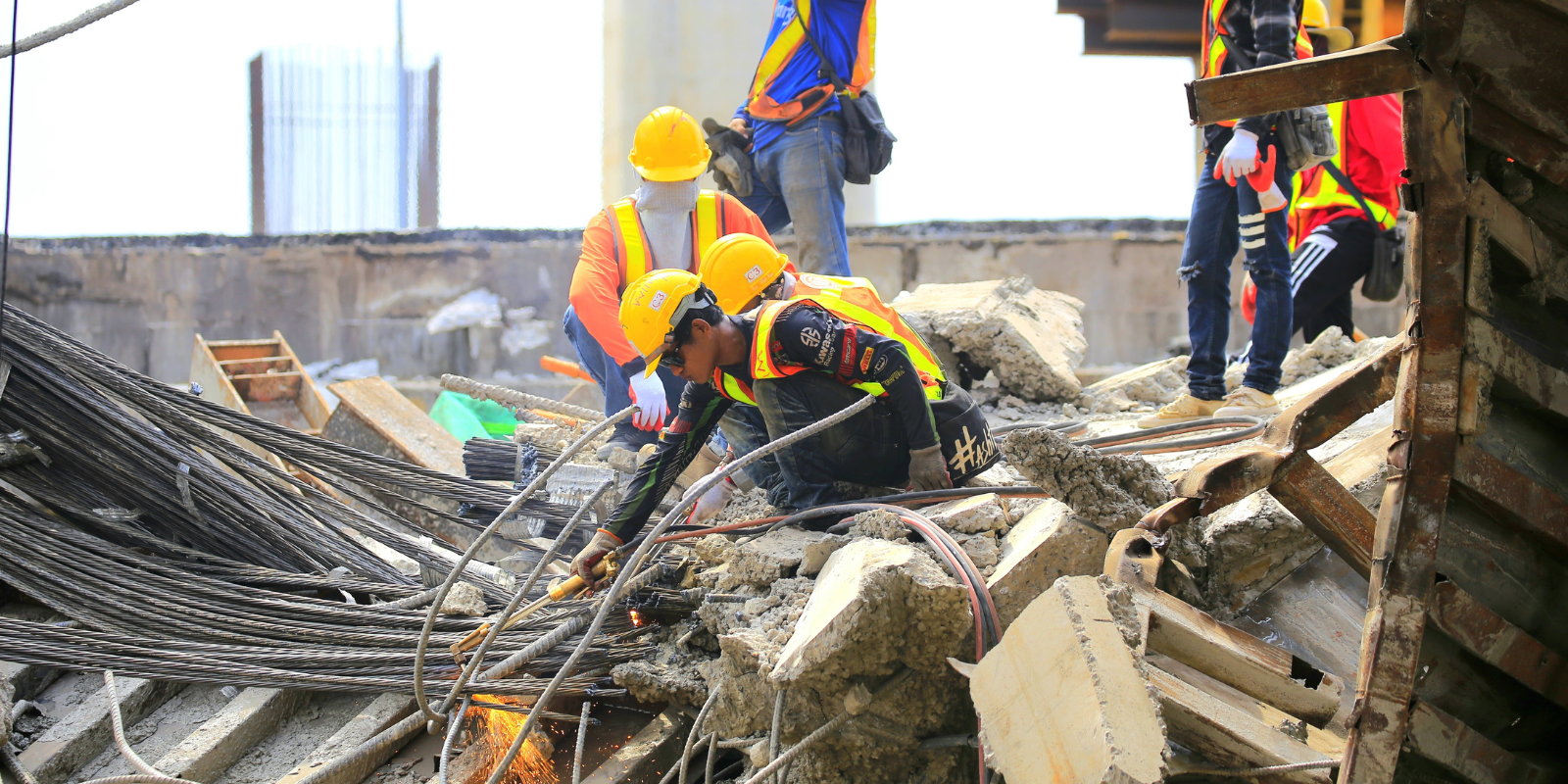Don Elliman, Chancellor
Good afternoon. For those of you that I don't know, I'm Don Elliman. I'm honored to be the Chancellor of this campus. And to the few hearty souls, I think weather defeated the purpose, some of the purpose of this, but I do think it's very important that we have this event.
I know that there are far more people watching on Zoom right now than are standing in front of me and I'm very, very grateful for the people who've taken the trouble to come out here. I want to thank the deans, all of them who are present here today with the exception of Jon Samet, who's in Rhode Island and wishes he could be here.
You know, this has been an incredibly difficult time for everybody. We tend to look back on it and say it was 10 months ago in May, but the reality is it started decades, centuries ago and continues to this day.
And while yesterday may have brought some sort of immediate sense of relief to some of us, I don't know about you, but I find it kind of hard to celebrate the fact that justice was done over the loss of a life of a human being.
On the one hand, obviously it is good that justice was done – on the other hand, George Floyd's not coming back and neither is Breonna Taylor or Elijah McClain or countless others. And there will be countless more to follow. I don't doubt that for a minute. I don't think anybody can.
So, while it's important that we, I think, respect and, at some level, feel gratified at the verdict that came down yesterday, I think it's sobering to know how much lies ahead and what we have in front of us.
We often say we live in a divided society. I would actually argue we live in a fractured society, fractured in so many different ways right now.
And our role on this campus is a role of hope and healing. That's what we're about. So our task going forward, and in that I enlist your aid, is simply to try to figure out what we can do collectively and individually to contribute to the hope and healing of the society that so badly needs our help.
You know, we're going to look to you to help us figure out how we build programs that address systemic racism, that address so many of the other discriminatory (issues) that we have in our society.
And we not only invite, we encourage and may even demand that you help us figure out what roads we should be traveling down as a campus and as individuals on the campus.
The need is great. We have very, very much to do, and so it's time that we got on with it.
I'm going to turn the podium over now to Dr. Regina Richards, who is the newly minted Vice Chancellor for Diversity, Equity, Inclusion and Community Outreach. And she will introduce one or more speakers. So thank you again for coming today.
I really appreciate your attention, and please, please help us chart a path so that we can make a difference in our world.
Thank you.
Regina Richards, Vice Chancellor for Diversity, Equity, Inclusion and Community Outreach
Thank you, Chancellor Elliman. Thank you all so much for being here. Our deans, our leaders here, and all of you who I believe are leading with us in this charge.
First of all, I'd like to take a moment and read our land acknowledgement. As we're working towards equity, we want to be sure that we are gathering and acknowledging those that have come before us. So we humbly acknowledge that University of Colorado Anschutz Medical Campus is located on the traditional and contemporary homelands of Indigenous peoples.
Our campus resides on unceded lands of the Arapaho people established to the Treaty of Fort Laramie in 1851. We recognize the enduring presence of more than 40,000 Indigenous people in the greater Denver area.
The sprawling urban American Indian and Alaskan Native presence in Denver consists of other tribes to Colorado such as Apache, Comanche, Shoshone and Ute community members, yet is now home to numerous other Indigenous people from many of the 560-plus federally recognized tribes in this country.
Together, we acknowledge the history of genocide and ongoing system inequities while respecting treaties made on this territory as a step towards reconciliation and strengthening relationships with Indigenous people.
We give thanks to the past, present and future stewards of this land and respect all tribal nations' sovereignty and right to self-determination. We recognize the lessons, including many medical and public health lessons, Indigenous communities have offered and continue to teach us.
Today we stand in solidarity to acknowledge the public rendering of accountability for the murder of George Floyd.
We know that there are many who have suffered the tragedies, the trauma, as it relates to senseless killings and murders and so many other injustices.
We would be remiss if we did not acknowledge Elijah McClain here in our own Aurora area. This is the place we find ourselves – and I'm going to speak specifically about myself and believe that it probably resonates, as Chancellor Elliman said, with others.
We're in a place of shock. We're in a place of hope, trying to really recognize what this level of structural systemic accountability means going forward.
I believe in the words from Dr. Martin Luther King Jr. in his “Audacity of Hope” speech. Though modified, I'd like for you to join me in a moment of imagery.
If you choose to close your eyes, you can. But when you do, and if you do, I implore you to dream with the audacity of hope, hope that we are moving towards a world where we see all persons through the lens of humanity, regardless of our differences, and that we are valued. That we have policies, structures, systems that are constructed on the principles of equity and where barriers are eliminated. That systems of accountability are equitable, and senseless killings and violence have ceased. I implore you to have the audacity – the audacity of hope – that our vision for a better and just nation and world becomes a reality and that the history and the presence of oppression, marginalization and inequities no longer coexist.
Here on our campus, we are working towards those systems of change, of equity and of justice for our internal communities, for our external communities, and for the health of all the communities we serve.
I would like to also add that we take a moment to just breathe.
The last time that I was before you almost a year ago, we were talking about the eight minutes and 49 seconds that George Floyd could not breathe. But now I need us to exhale for just a moment and to remain, even though exhausted, hopeful, faithful, encouraged and committed to this work. We are leading together, and we will not stop until justice is truly for all.
Thank you. I'd like to introduce my colleague Dr. Shanta Zimmer to speak next and after her will follow Michael Gallagher, who is the President of our Student Senate, and also in the Master of Public Health Program here on our campus, in our School of Public Health.
Thank you.
Shanta Zimmer, Professor of Medicine-Infectious Disease and Associate Dean of Diversity and Inclusion, CU School of Medicine
Thank you, Regina, Vice Chancellor. Thank you for inviting me to say a few words today.
When Regina asked me to speak about what this experience has meant to me around the murder of George Floyd and the verdict yesterday in the trial, I had a difficult time coming up with words of my own.
I like to echo the words of others instead.
First, in alignment with Chancellor Elliman's comments about it being difficult to celebrate right now, I would quote our Vice President, who said yesterday, “A measure of justice is not the same as equal justice.”
And while I'm grateful that our minority communities and especially the Black community of our students and our faculty and staff have seen this as a pathway towards justice, I was not surprised that Vice Chancellor Richards would share comments of hope.
I'd like to take us back to our Juneteenth celebration, shortly after the murder of George Floyd and share with you a poem from 1893: “Sympathy” by Paul Laurence Dunbar.
I know what the caged bird feels, alas!
When the sun is bright on the upland slopes;
When the wind stirs soft through the springing grass,
And the river flows like a stream of glass;
When the first bird sings and the first bud opens,
And the faint perfume from its chalice steals –
I know what the caged bird feels!
I know why the caged bird beats his wing
Till its blood is red on the cruel bars;
For he must fly back to his perch and cling
When he fain would be on the bough a-swing;
And a pain still throbs in the old, old scars
And they pulse again with a keener sting –
I know why he beats his wing!
I know why the caged bird sings, ah me,
When his wing is bruised and his bosom sore –
When he beats his bars and he would be free;
It is not a carol of joy or glee,
But a prayer that he sends from his heart’s deep core,
But a plea, that upward to Heaven he flings –
I know why the caged bird sings!
Striking to me that in 1893, these words were written and then grew into a poem by Maya Angelou in 1970, and they were capitalized again by the words of Amanda Gorman at the inauguration in January of this year.
We have a lot of work to do.
This is a measure of justice, but not an equality of justice.
Let's try to move faster than we've been moving over the last two centuries.
Thank you.
Michael Gallagher, President of Student Senate
Hi everyone. My name is Michael Gallagher.
I am representing the Student Senate as the Student Senate President. I had written down some words, so I'm going to pull that out.
So I want to start first by echoing the message that Dr. Zimmer and Dr. Richards were saying. Dr. Richard's message of hope, but Dr. Zimmer's emphasis on the work that we need to do now.
And I want to thank you all for being here today in solidarity and support for Black, Indigenous, and POC communities locally and nationally, and here in solidarity and support for the abolition of our racist systems that perpetuate violence and harm against these communities.
Yesterday at around 3:07 p.m., the Minneapolis police officer who murdered George Floyd was found guilty on all charges – manslaughter, third-degree murder and second-degree murder. Less than an hour earlier in Ohio, a Columbus police officer shot and killed (Black teenager) Ma'Khia Bryant. There have only been three days this year where U.S. police have not extra-judicially killed someone.
I've been glued to social media and Twitter and the like, reading reactions from many news sources and countless activists. Before the verdict was read, it felt as if the whole country was holding its breath, something that is wild to consider given the huge abundance of evidence and the clarity of the situation; it was murder.
Even with more evidence and witnesses than would be necessary in any other situation, we were unsure of the outcome and that jurors would make the correct decision.
Now the terms “justice” and “accountability” were utilized near-ubiquitously by news organizations and politicians. Justice and accountability.
Now, I don't want to underplay the importance of the verdicts yesterday. It was an historic moment, one brought not because of our justice system or because it is just, but it was because of the collective strength of activists in Minneapolis and nationally.
Darnella Frazier was 17 years old, and she was the young woman who filmed this incident. George Floyd's family and activists in the Minnesota Freedom Fund and activists nationally, cried out for the Hennepin County District Attorney to add the more-severe charge of second-degree murder. Was the correct outcome of this case reached?
Yes.
Was justice provided? I'm not so certain.
George Floyd was still murdered, and police are still murdering Black and brown people to this day.
This activist and media director for the Oakland's not-for-profit, Planting Justice, Ashley Yates tweeted yesterday, "I don't like the shift folks are trying to make towards calling this guilty verdict accountability. It is not that. It is a punitive consequence for one individual, and that's it."
And to tie this back to us as students on this campus, we're a health professions campus, and we have the opportunity to be leaders and change-makers.
We can take the lead, or we can follow in the footsteps of the activists that have come before us in dismantling these systems of oppression.
So as future leaders, change-makers and activists, we as students, can push our society forward, we can dismantle white supremacy, colonialism, racism and the systems like policing that allow these harms to perpetuate.
So, with that I want to leave you all with something from our Vice President Hana Belay-Gebru: “Our nation has been systematically oppressing and murdering its citizens. One of the biggest beasts we face today that we must tear down to see any form of change is the prison industrial complex. Sending Chauvin to prison legitimizes this system, but we, as a community, can break it down.”
Thank you.
Jan Gascoigne, Associate Vice Chancellor for Student Affairs
Thank you, Michael and Hana, who could not be with us today, but sent her message.
Good afternoon, everyone. My name is Jan Gascoigne, and I'm privileged to serve as the Associate Vice Chancellor for Student Affairs, and I'm also an Associate Professor in the Colorado School of Public Health.
As the speakers before me have shared today, it is a time for us to acknowledge the historical and current individual and collective pain and grief. It is a time for us to recognize the verdict in this one trial that has rendered accountability, and it is time for us to make a commitment to take action in addressing racial and societal injustices.
While we don't have all the answers, we would like to offer our campus a call to action for those who would like to participate. We invite you to sign a pledge of solidarity as a member of our campus community dedicated to helping bring forth healing and change.
Today we have a banner here for those who would like to sign it, or if you are joining us virtually, you can also sign the pledge by scanning the posted QR codes or using the link in today's campus email.
We will combine all of your signatures and post the pledge in our education buildings as a visible reminder of our shared commitment. Now, I will read the pledge aloud.
As a member of the University of Colorado Anschutz Medical Campus community, I stand in solidarity with my peers and colleagues in a shared commitment. I pledge to work with my CU Anschutz community to address and heal racial and societal inequities, locally and nationally, in our health, education, judicial, law and law enforcement systems.
Chancellor Elliman and Police Chief (Randy) Repola, would you like to sign the pledge to start us off?
Next, I would like to invite the Deans, the Vice Chancellors and Associate Vice Chancellors.
I would like to invite our shared governance leaders, Michael Gallagher, Student President of the Student Senate, and Cindy O'Brien, Faculty Assembly.
And before we ask the audience to come and sign, I'd like to hand the podium over to Dr. Richards, who will share details of the caucus events available for those who wish to stay and participate.
Regina Richards
Thank you so much, Dr. Gascoigne.
In conclusion, I wanted to, first of all, also invite our colleague, Dr. Dominic Martinez, Associate Vice Chancellor for the Office of Inclusion and Outreach, to please come up and sign the pledge as well.
And as we conclude, I want to invite you all, if you would like to join any of the, what we're calling caucuses, after this solidarity gathering, refer to the announcement that has gone out at 1:30.
We will have four in-person caucuses here, and the room numbers will be attached to that message as well as Zoom caucuses. So feel free.
We have faculty staff members who have agreed to have open sessions where you can come and debrief or sit in silence with others or do whatever you need to do to take care of yourselves today and to stay encouraged to move on for tomorrow.
Thank you all so much for being here.

 Regina Richards, Vice Chancellor for Diversity, Equity, Inclusion and Community Outreach, speaks at the solidarity event.
Regina Richards, Vice Chancellor for Diversity, Equity, Inclusion and Community Outreach, speaks at the solidarity event.

